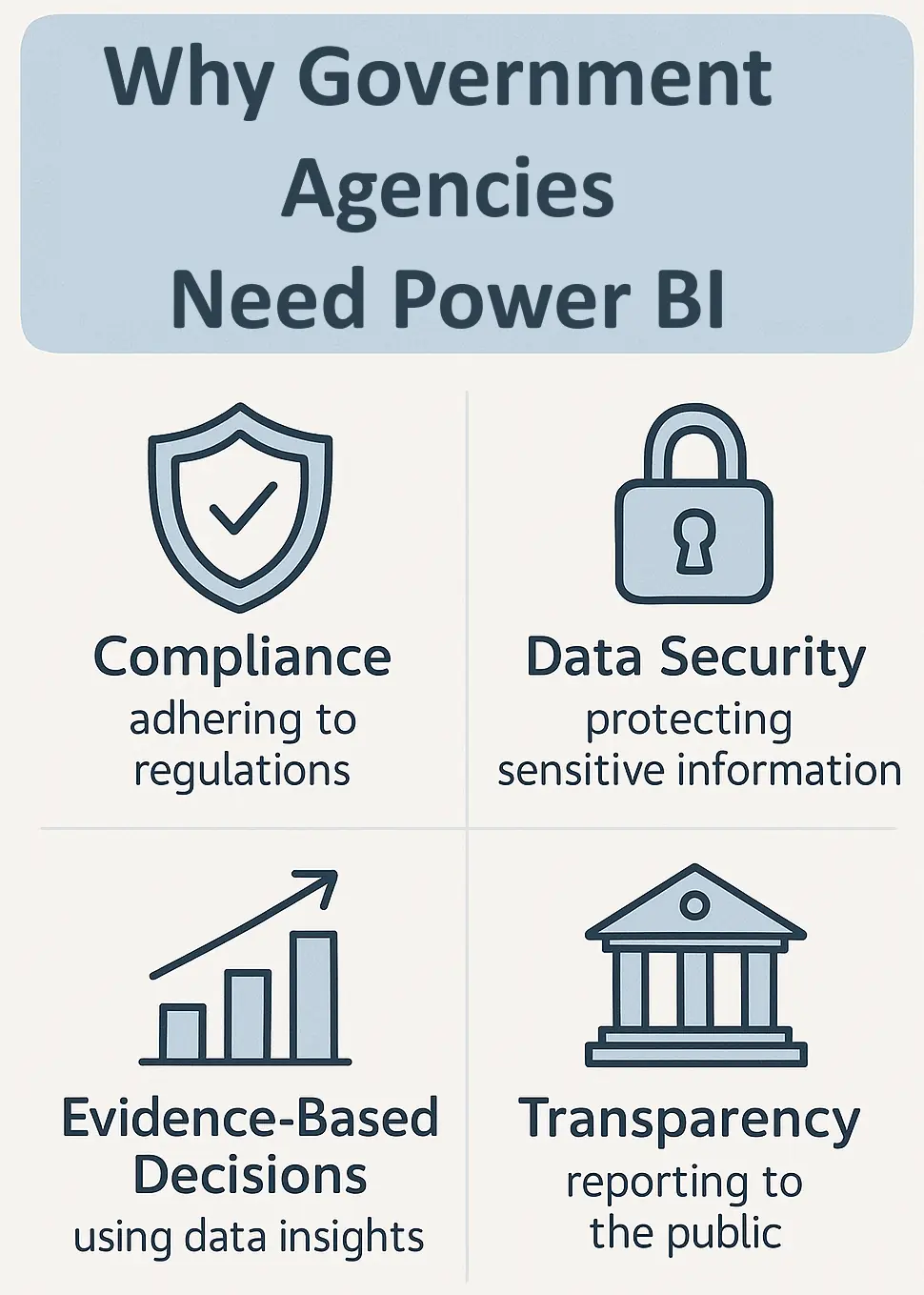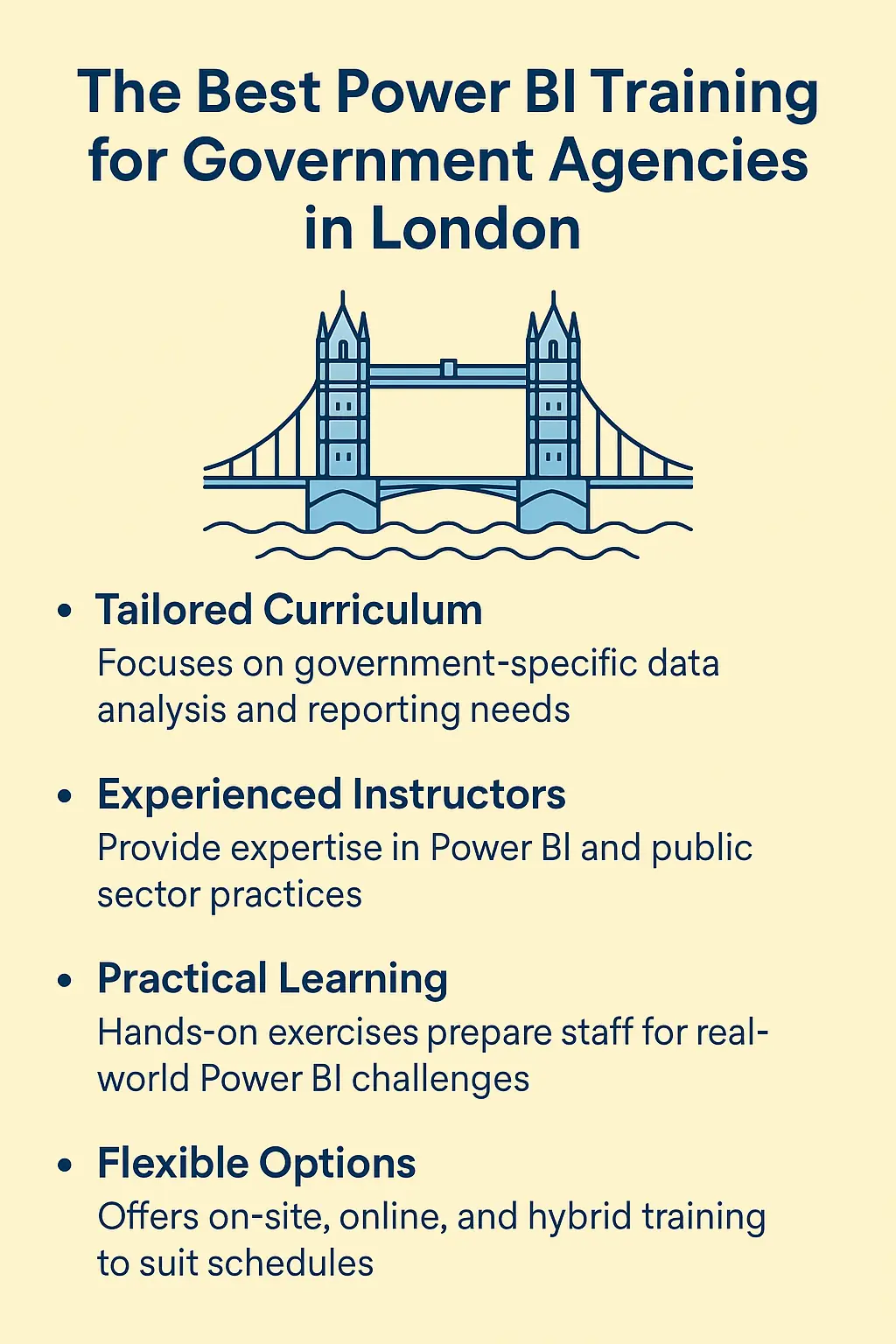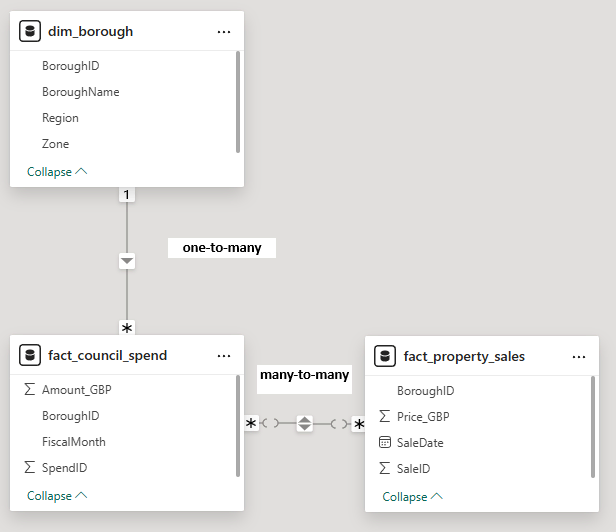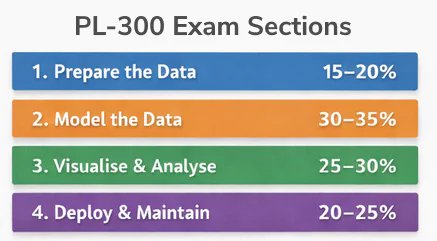
The Best Power BI Training for Government Agencies in London
Contents
- 1 What Makes Power BI Training Different From The Public Sector?
- 2 The Best Power BI Training Options for Government Agencies in London
- 3 Key Topics Covered in Government-Focused Power BI Training
- 4 Choosing the Right Training Provider in London
- 5 How Acuity Training Structures Power BI Training for Government Agencies
- 6 Next Steps
Government agencies across London rely on vast amounts of data — from budget management and compliance reporting to citizen services and policy analysis.
Microsoft Power BI has become the preferred tool to transform raw data into interactive dashboards and actionable insights.
For public sector teams, specialist Power BI training is critical. It ensures staff can:
-
Build accurate, compliant reports aligned with government data standards.
-
Handle sensitive datasets securely under GDPR and UK data governance policies.
-
Deliver evidence-based decisions quickly for leadership and stakeholders.
-
Improve transparency by sharing dashboards with the public.
What Makes Power BI Training Different From The Public Sector?
While many commercial organisations adopt Power BI for sales or finance reporting, government agencies face unique challenges: Freedom of Information obligations, GDPR, and Cabinet Office guidelines. Data governance is also more complex, with a strong emphasis on permissions, auditing, and role-level security to ensure sensitive information is only accessible to the right users.
Integration requirements tend to be broader as well, with Power BI often needing to connect to case management systems, HR platforms, or public-facing open data portals rather than standard commercial systems. All of this must be achieved within tight budget constraints, meaning agencies need to maximise the value of their Power BI licensing and training investment.
For government agencies in London, the most effective Power BI programmes are those that address data security, compliance, and role-based learning from the start.
We’ve seen adoption grow fastest when executives receive KPI-focused dashboards, analysts are trained in DAX, and operational staff practise with live datasets that reflect their real-world challenges.
The takeaway: tailoring training to roles and compliance needs ensures Power BI is actually used day-to-day – not just installed.
The Best Power BI Training Options for Government Agencies in London
1. Onsite Power BI Training in London
Onsite Power BI training in London remains a strong option for organisations that require face-to-face delivery, as it allows courses to be run either within government offices or at a central London venue. This approach supports a fully tailored syllabus built around internal datasets, provides a confidential environment for discussing real scenarios, and encourages collaboration across departments. It is particularly well suited to teams working with sensitive or classified data who cannot risk cloud-based sharing.
2. Remote / Online Power BI Training
Remote or online Power BI training offers a more flexible alternative for agencies that cannot bring everyone together in one place. Live, instructor-led virtual sessions can be delivered in shorter blocks, reducing disruption to daily work while also lowering travel and venue costs, making this option ideal for multi-location or nationally distributed teams.
3. Bespoke Training for Government Agencies
For organisations with highly specific needs, bespoke Power BI training provides the greatest level of alignment. They offer customised workshops designed around specific government functions such as public health reporting, financial oversight and compliance, or urban planning and transport analysis using open datasets.
Key Topics Covered in Government-Focused Power BI Training
A strong programme for public sector teams should cover:
-
Power BI Desktop fundamentals: importing, cleaning, and modelling data.
-
Data security & governance: setting permissions, auditing, and compliance.
-
DAX for public sector analysis: writing formulas for KPIs and performance metrics.
-
Publishing securely: controlling dashboard access within Microsoft 365 / Azure.
-
Case study exercises: e.g. budget forecasting, citizen feedback, service delivery KPIs.
Choosing the Right Training Provider in London
When comparing Power BI courses, government agencies should look for:
-
Public sector experience – Does the provider have case studies with councils, NHS, or Whitehall departments?
-
Customisable syllabus – Can training adapt to your datasets?
-
Data security understanding – Do trainers cover GDPR and role-level security?
-
Post-training support – Is there mentoring, refresher sessions, or access to materials?
-
Certification alignment – Does training prepare staff for the Microsoft Certified Data Analyst Associate exam?
How Acuity Training Structures Power BI Training for Government Agencies
At Acuity Training, we know that public sector teams face unique challenges around compliance, data governance, and budget accountability.
That’s why our Power BI training is built specifically for government agencies – not just generic examples.
We structure programmes around role-based learning, ensuring executives, analysts, and operational staff each get the skills they need to succeed.
Every course is tailored to your datasets and security requirements, with a strong focus on GDPR, role-level security, and auditability.
With over a decade of delivering Power BI training across the UK, we help government teams turn complex data into trusted insights, while meeting compliance standards and driving measurable impact.
Next Steps
Government agencies across London are under pressure to make better, faster, data-driven decisions.
Power BI offers the platform, but effective training is the key to unlocking its potential.
Ready to upskill your team? Contact us today for a tailored Power BI training programme for your agency!
- Facebook: https://www.facebook.com/profile.php?id=100066814899655
- X (Twitter): https://twitter.com/AcuityTraining
- LinkedIn: https://www.linkedin.com/company/acuity-training/




